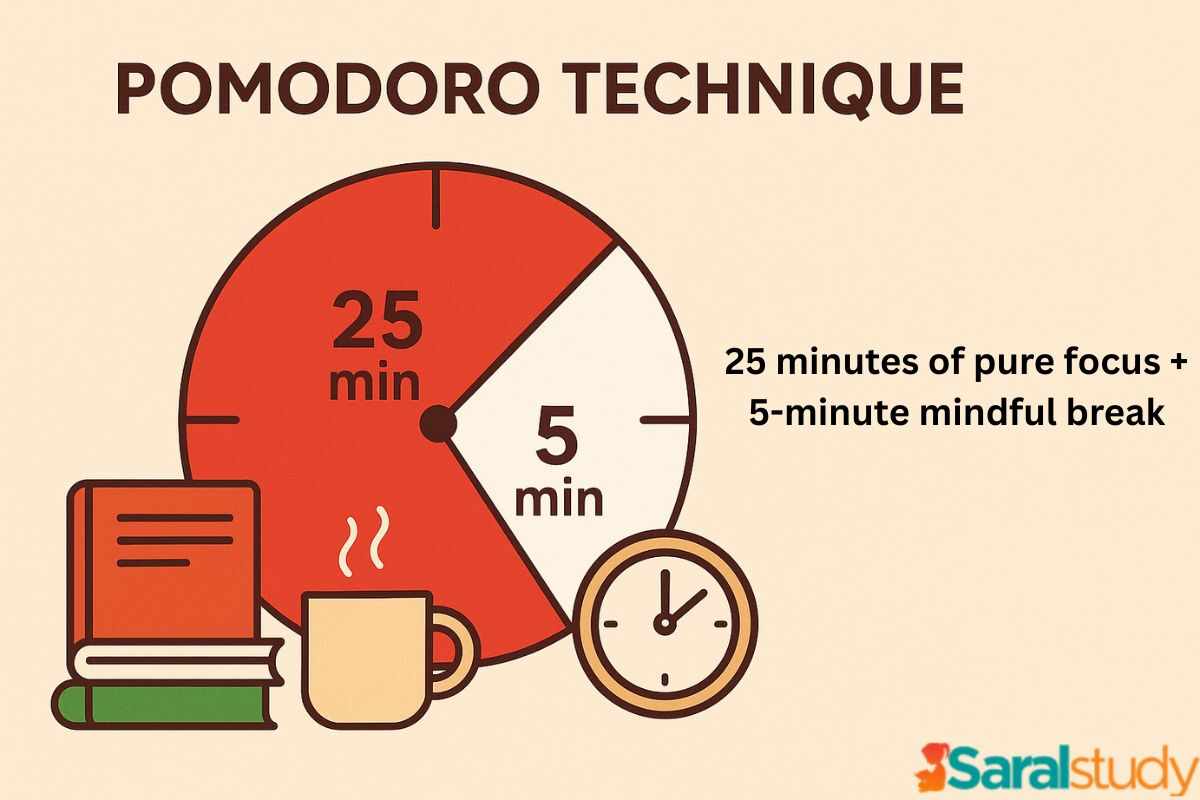Every student dreams of better grades , stronger focus and more study time – but the real challenge isn’t starting, it’s staying consistent . Building productive study habits is not about studying all day , it’s about studying smart .
In today’s fast – paced digital world, distractions are everywhere – from endless phone notifications to social media scrolls . But when you understand how habits work and create systems that support your growth, success naturally follows .
Let’s explore scientifically backed and practical strategies that will help you form effective study habits , stay consistent and reach your academic goals without burning out .
What Are Productive Study Habits ?
Productive study habits are routines or actions that make studying easier, more effective and more enjoyable. They are built gradually through repetition and self-discipline.
For example, setting a fixed study time daily, taking short breaks or reviewing notes after class may seem small – but done regularly, they transform your academic performance.
These habits are what separate top-performing students from the rest – not natural intelligence, but consistency and structure.
Why Good Study Habits Matter
Good study habits create a ripple effect in your academic and personal life:
- You feel less stressed before exams.
- You remember more in less time.
- You gain confidence because you are prepared .
- You have more free time because you plan effectively .
When you build productive habits , studying becomes a lifestyle rather than a burden .
Steps to Build Productive Study Habits
Here are steps to help in building productive study habits:
Understand the Science of Habits
Habits are built in three stages – cue , routine and reward .
- Cue: A trigger that reminds you to start (e.g., setting an alarm at 6 PM).
- Routine: The study activity itself (e.g., reading and note-making).
- Reward: The satisfaction or reward afterward (e.g., watching a short video , having a snack).
By repeating this cycle, your brain associates studying with positive feelings rather than stress.
Quick Tip: Habit Stacking
Attach your study habit to an existing routine—for example, “I’ll start studying right after evening tea.” This technique makes consistency easier.
Create a Dedicated Study Space
A clean, quiet, and organized study space signals your brain that it’s time to focus. Avoid mixing your bed with your study area—it confuses your mind between rest and work .
Keep your desk minimal: just your books, water bottle, notepad and pen . Add a motivational quote or soft light to make it inviting .
Checklist: What Your Study Desk Should Include
- A good chair and table
- Stationery essentials
- Water bottle
- Plant or motivational quote card
When your environment supports concentration , half your battle is already won .
Set Clear and Achievable Goals
Vague goals like “I’ll study science today” often lead to procrastination. Instead, set SMART goals – Specific, Measurable, Achievable, Relevant and Time-bound.
Example of a SMART Study Goal:
- “I’ll study biology.”
- “I’ll revise the chapter on cells and solve 10 related questions in 40 minutes.”
Breaking large goals into smaller, trackable steps keeps you motivated and helps you measure progress.
Use the Pomodoro Technique
The Pomodoro technique enhances focus by dividing your study time into short sessions.
- Study for 25 minutes.
- Take a 5-minute break.
- After four rounds, take a longer 20 – 30 minute break.
This technique prevents burnout and keeps your brain refreshed.
Mini Challenge: Try One Pomodoro Round Today
Set a timer, study deeply for 25 minutes and enjoy a guilt-free 5-minute break.
Prioritize Tasks Using the Eisenhower Matrix
Not all tasks are equally important. The Eisenhower Matrix helps you decide what deserves your attention.
The Four Quadrants:
- Important & Urgent: Do it now (e.g., exam tomorrow).
- Important but Not Urgent: Schedule it (e.g., revising notes).
- Not Important but Urgent: Delegate it if possible.
- Not Important & Not Urgent: Avoid it (e.g., endless social media scrolls).
By organizing your day this way, you reduce stress and stay productive.
Build a Consistent Study Routine
Your brain loves patterns. Studying at the same time every day builds rhythm and reduces mental resistance.
Sample Study Schedule:
- 6:30 PM – Review yesterday’s notes
- 7:00 PM – Deep study session
- 8:00 PM – Short break
- 8:15 PM – Practice test or quiz
Follow it for two to three weeks, and you’ll notice studying becomes a natural habit.
Eliminate Distractions
In a world full of digital temptations, focus is your superpower.
Try These Focus Tips:
- Keep your phone out of reach or on Do Not Disturb mode
- Use productivity apps like Forest, FocusMe, or Stay Focused
- Study in a quiet, well-lit area
A clean and calm environment helps you enter the flow state—where learning feels effortless.
Review and Reflect Regularly
Studying isn’t just about reading—it’s about understanding and retaining.
Weekly Review Checklist:
- Revise notes from each subject
- Identify weak areas
- Test yourself using quizzes or flashcards
Try the active recall method: close your book and explain what you learned in your own words. This strengthens memory retention.
Reward Yourself for Progress
Positive reinforcement helps you stay consistent.
Reward yourself after completing a study goal—watch a short video, listen to music, or enjoy a treat.
This creates a link between effort and enjoyment, motivating you to repeat the behavior.
Stay Physically and Mentally Healthy
Good study habits are built on a healthy mind and body.
Daily Wellness Tips:
- Sleep at least 7–8 hours
- Eat balanced meals and stay hydrated
- Take short walks or stretch breaks
- Practice mindfulness or deep breathing
When your body feels good, your mind performs better.
Bonus Habit Hack
Here is given a bonus hack to build Productive Study Habits
The Five-Minute Rule
Whenever you feel too lazy to start studying, tell yourself, “I’ll just study for five minutes.”
Most of the time, once you begin, your momentum keeps you going.
This simple trick helps you overcome procrastination and trains your brain to start tasks quickly.
Common Mistakes to Avoid
You should avoid these common habits that hurt your productivity:
Habits That Hurt Productive Study Habits
- Studying without a clear plan
- Multitasking between phone and books
- Cramming all night before exams
- Ignoring rest or health
- Comparing your progress with others
Productive study habits grow from steady effort—not overnight change. Focus on progress, not perfection.
Conclusion
Building productive study habits is not about studying more hours—it’s about studying with purpose and structure.
By understanding how habits form, creating a fixed routine, and managing your time wisely, you can transform your academic performance and reduce stress.
Remember: Consistency beats intensity. Start small, stay disciplined and celebrate your wins. Each step you take builds momentum and confidence – your future self will thank you for it.
Also Read: The Role of Parents in Digital Literacy ; Guiding Kids for a Smarter Online Future







